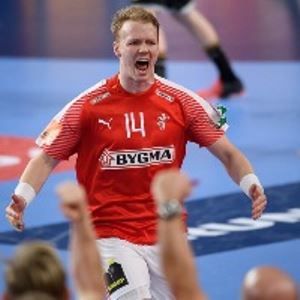

World title has not stilled Danes’ hunger for success
World title has not stilled Danes’ hunger for success
Denmark coach Nikolaj Jacobsen expects to see a highly motivated national team for the EHF EURO 2020 Qualifiers against Montenegro this month.
When the Danish national team meets to prepare for the two matches, it will be their first gathering after the triumph in January, when Denmark became World champions for the first time in history.
The series of 10 wins from 10 matches at the competition in Germany and Denmark was completed by a 31:22 win in the final against Scandinavian neighbours Norway in front of 15,000 spectators in Herning.
“I am sure it will be great fun to be together again, although it is difficult to say if some players will be overly satisfied after the triumph in January. I do not expect this, however,” Jacobsen says.
If Denmark go on and win the EHF EURO 2020 in Austria, Norway and Sweden next year, they will be holding all three major titles at the same time as Olympic, world and European champions.
“This may be a motivation in itself, especially to those among our players who have been involved in winning the first two titles already,” Jacobsen says. “But I think, winning a European Championship should be sufficient motivation alone, so I fear no problems in that respect.”
The two most difficult matches in the group
Before the two matches against Montenegro, Denmark are leading qualifying Group 7. In October, the Danes defeated Ukraine 30:24 in Aarhus and the Faroe Islands 35:17 in Skjern.
Montenegro are third with one point after their first two matches.
“It is obvious that Montenegro will have been disappointed by their start to the qualifiers, drawing at home against the Faroe Islands and losing to Ukraine. However, they still have a fine team, and one should remember that they have often been able to qualify for major championships,” Jacobsen says.
“Ever since I saw the draw for these qualifiers, I have considered the matches against Montenegro to be our two most difficult matches in the group, and that is still my opinion,” he adds. “Away games on the Balkan are always difficult, and our away game against Montenegro will probably not be any exception to that rule, whilst I expect Montenegro to be getting serious trouble when meeting us in Copenhagen.”
The first meeting between the two nations takes place on 10 April in the S. C. Moraca in Podgorica, home base to many great matches from the women’s team of Buducnost, but where the men’s national team can also count on enthusiastic support.
The support is also likely to be huge for the Danish team three days later in the Royal Arena in Copenhagen, which is already sold out with 12,500 spectators.
“We are always happy to play in front of our own spectators, but playing for a completely full Royal Arena in our first home match after our triumph on home ground in January will be something very special, which I am sure each and every player in our team is looking forward to,” Jacobsen says.
Few changes in Danish team
‘Never change a winning team,’ the old saying goes, and Jacobsen has not found any reason to make many changes compared to the outfit that became world champions just over two months ago.
In fact, he has only made the changes he has been forced into making.
Left wing Casper U. Mortensen, line player René Toft Hansen and left back Nikolaj Markussen are all out with injuries, while right back Hans Lindberg is taking some time off from the national team.
“Hans has asked for a break until the summer. He has had a season with plenty of matches and some injuries, and we have agreed to take a look at things again this autumn,” says Jacobsen, who has nominated left back Jacob Holm from Füchse Berlin.
Holm will make his comeback to the national team, while left wing Emil Jakobsen from EHF Cup participants GOG is a new face in the squad.





